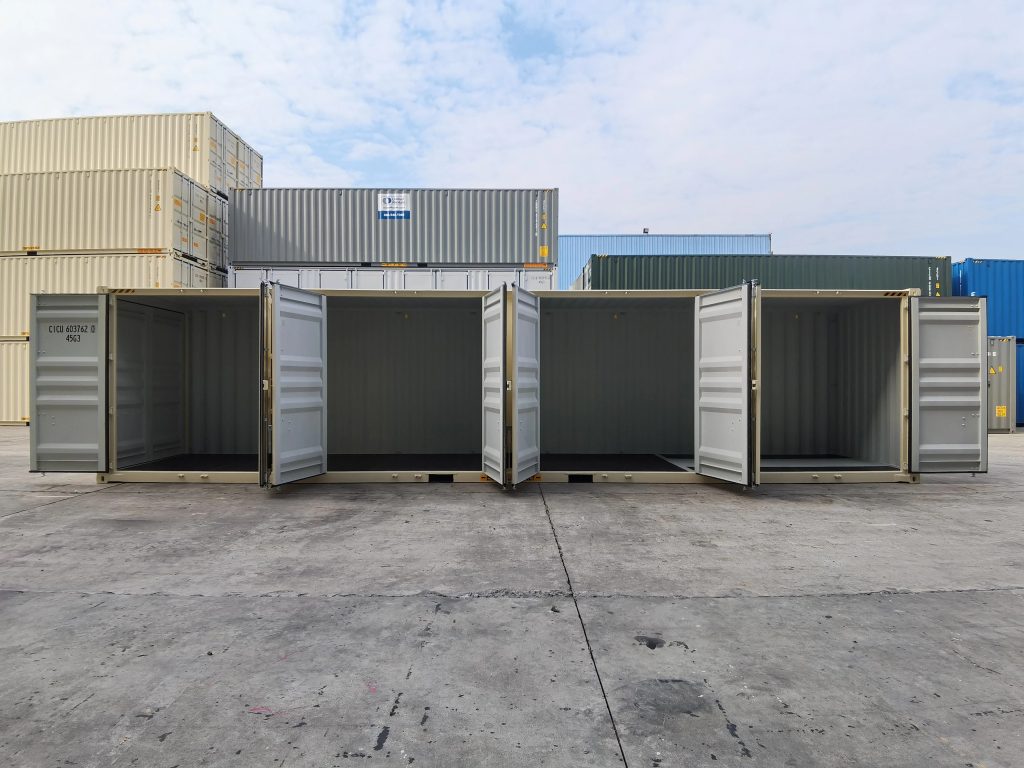11 Creative Ways To Write About Shipping Container Depot

Understanding Shipping Container Depots: The Backbone of Modern Logistics
As global trade continues to broaden, the significance of efficient shipping and logistics has actually grown exponentially. Amongst Used Cargo Containers that comprise this complicated network, shipping container depots play a critical role. These facilities are vital for the storage, repair work, and management of shipping containers, serving as hubs that simplify the circulation of products throughout international borders. This post looks into what shipping container depots are, their functions, benefits, and challenges, while providing an extensive overview of their significance in the supply chain.
What is a Shipping Container Depot?
A shipping container depot is a facility designed to manage the consumption, storage, maintenance, and dispatch of shipping containers. Stimulating pictures of huge outdoor spaces filled with vibrant containers, depots are necessary in helping with the effective motion of goods and supporting the worldwide maritime logistics industry.
Functions of Shipping Container Depots
| Function | Description |
|---|---|
| Storage | Provides a protected place for unused shipping containers waiting for deployment. |
| Repair work and Maintenance | Offers services to fix broken containers, guaranteeing they meet security and compliance requirements. |
| Container Management | Handles the stock and movement of containers, consisting of tracking and maintenance schedules. |
| Transport Services | Collaborates the transport of containers to and from shipping ports and other transportation hubs. |
| Customizeds and Inspection Services | Collaborates with customizeds authorities to help with the inspection and clearance of containers. |
Significance of Shipping Container Depots
Shipping container depots not just allow cost-efficient logistics however also enhance operational performance and safety within the supply chain. Let's explore their significance further:
- Enhanced Efficiency: By centralizing container management, depots reduce the time needed for transport and dispatch, resulting in faster turnaround times.
- Resource Optimization: Depot services can cause much better implementation of shipping containers in addition to the efficient usage of area and resources.
- Security and Compliance: With devoted repair work centers, depots ensure that containers are compliant with safety guidelines before they are shipped.
- Cost Savings: Effective management at depots can lead to lower transport and storage costs, providing considerable cost savings for shipping companies.
- Regional Economic Impact: Depots typically develop jobs and add to local economies by attracting businesses and shipping activity.
Key Considerations for Shipping Container Depots
When managing a shipping container depot, several elements require to be considered to ensure smooth operations:
1. Place
The distance to major shipping ports, highways, and railways is crucial. A well-situated depot decreases transport time for inbound and outbound containers.
2. Capability and Type of Storage
Depots need to assess the series of containers they can accommodate, consisting of standard intermodal containers and specialized containers for specific cargo.
3. Innovation Utilization
Executing innovative stock tracking systems (like RFID and GPS) simplifies the procedure of container management, improves security, and lowers human mistake.
4. Compliance and Safety Standards
Sticking to regional and worldwide safety requirements guarantees that containers are effectively kept and decreases the risk of mishaps.
5. Labor force Training
Investing in worker training is vital for making sure that personnel are well-informed about container management, security treatments, and repair work procedures.
Shipping Container Depot Challenges
While the value of shipping container depots can not be overemphasized, they do face several challenges:
- Container Shortages: Fluctuations in worldwide shipping needs can cause container lacks, straining depot operations.
- Maintenance Costs: Upkeep of containers can become a considerable expense, especially for older or damaged units.
- Regulatory Compliance: Navigating the complexities of both regional and global guidelines can be challenging and needs constant vigilance.
- Environmental Impact: Managing waste and ensuring environmentally friendly operations is becoming increasingly vital for depots in a world focused on sustainability.
FAQs about Shipping Container Depots
Q1: How do shipping container depots differ from shipping ports?A: Shipping container depots focus on the storage, repair, and management of shipping containers, while shipping ports are where vessels dock to load and unload cargo. Q2: What kinds of containers are usually foundin a depot?A: Common containers include standard intermodal containers, refrigerated containers (reefer ), tank containers, and flat racks. Q3: Who operates shipping container depots?A: Depots can be operated by
shipping lines, third-party logistics service providers, or independent depot business specializing in container management. Q4: Can I purchase a shipping container from a depot?A: Many depots offer used containers, which can be repurposed for various applications, including storage, housing, or transportation needs. Q5: What key metrics are used to measure the performance of a shipping container depot?A: Performance can be determined through metrics like container turn-around time, storage density, upkeep costs, and operational effectiveness rates. Shipping container depots are a linchpin worldwide of
maritime logistics. Their complex functions-- from storage and management to fix and compliance-- ensure that the large network of international trade operates efficiently. As trends in e-commerce and international trade progress, the function of shipping container depots will only continue to grow, forming the future of logistics. Enhancing their operations, dealing with challenges, and adjusting to market modifications will be vital for maintaining effectiveness in the supply chain and fulfilling the demands of a worldwide economy. Comprehending shipping container depots will empower stakeholders throughout industries to make informed decisions while adding to a more effective and durable logistics framework.

